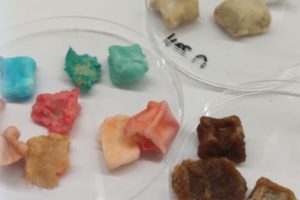- All
- Agricultura
- agrotech (antiguo)
- Agrotech (antiguo)
- Agua
- Alimentación, agricultura y medio marino
- Automoción
- Big Data
- Biomateriales
- blockchain
- Ciberseguridad
- Economía Circular
- Enertronic
- Enertrònica
- Food, agriculture and the marine environment
- Green Car
- IAQ
- ict
- Indoor air quality
- Industria 4.0
- Industry
- Inteligencia Artificial
- Internet of Things
- Materiales de frontera
- microxips
- Mobile Technologies
- Open innovation
- Óptica y fotónica
- Qualitat de l’aire interior (IAQ)
- Realidad Virtual y Realidad Aumentada
- Robótica y Visión
- Sector Salut
- Smart City
- Smart Grids
- Technology
- Tecnologías de Agrotech
- Tecnologías de Infraestructuras
- Tecnologías de la Energía
- Tecnologías de la Producción
- Tecnologías de la Química
- Tecnologías de la Salud
- Tecnologías de la Transformación Digital
- Tecnologías de Logística y Movilidad
- Tecnologías de los Materiales
- Tecnologías de Urbanismo y Sostenibilidad
- Tecnologías del Medio Ambiente
- Tecnologías Químicas y de la Alimentación
- Water
- X
- The Tecnologia Orientada a la Comunitat (TOC) research group at UPC, in collaboration with the Centre d'Estudis Porcins de Catalunya, leads the AEROFER project, which aims to demonstrate the viability of liquid fertilisers derived from pig manure in aeroponic cultivation, with the intention of later extrapolating it to conventional crops, thereby closing the loop from waste to resource, with a positive environmental impact on the region.
- The Maritime Engineering Laboratory at UPC (LIM) participates in a European project that will help improve the management of plastic pollution in the north-western Mediterranean and raise environmental awareness among citizens about marine preservation.
- Microalgae-based wastewater treatment systems have demonstrated the ability to recover nutrients from wastewater and produce valuable biomass for agricultural applications while also recovering energy through the anaerobic digestion of residual biomass. In the Cyan2Bio project, in which the Group of Environmental Engineering and Microbiology (GEMMA) of the Universitat Politècnica de Catalunya - BarcelonaTech (UPC) is participating, an additional step will be taken in the valorisation of microalgae biomass to obtain biopolymers suitable for transformation into bioplastics alongside pigments, thereby replacing fossil-based materials.
- The energy transition is reshaping the foundations of the power grid, driven by the massive deployment of renewable generation based on power electronics and the gradual disconnection of conventional fossil-based generation. In this context, grid operators will require support systems to provide flexibility, as renewable generation is highly variable.
- Since the early 21st century, the agricultural sector has faced significant challenges, such as the increasing demand for quality products and a lack of generational replacement. In this context, the agri-food sector is compelled to follow the example of other industries and prioritise digitalisation and automation to ensure sustainability and competitiveness.
- RootBot aims to develop and demonstrate an autonomous robotic electromagnetic detection system equipped with ground-penetrating radar (GPR) and advanced navigation technologies to map the root systems of fruit trees and soil moisture. This project seeks to optimize agricultural resource management, particularly water, and contribute to more sustainable farming through the use of innovative technological tools.
- The Group of Environmental Engineering and Microbiology (GEMMA) at UPC is leading the PROALGAE project, aimed at producing new alternative proteins from biomass derived from microalgae and cyanobacteria cultivated using by-products from the agri-food industry. These alternative proteins aim to provide a sustainable ingredient to meet the growing global demand for protein, applicable in the development of food and feed.
- Barcelona is characterised by a high consumption of bottled water (55% of the population drinks it regularly). The reasons for this behaviour tend to be dissatisfaction with the organoleptic characteristics, perceived health risks and distrust of the quality of tap water.
- UPC, the Port of Barcelona and Siport21 will create an innovative operational traffic management system based on artificial intelligence and machine learning. This will be developed within the Compass+ project, which has been recognised as a pre-commercial project in the second call of the innovation fund managed by Ports of the State − Ports 4.0. The aim of the fund is to enhance efficiency and safety in port operations by integrating disruptive technologies that will drive the ports of the future.
- The innovation and research laboratory of the Barcelona Faculty of Computer Science (inLab FIB) at the Universitat Politècnica de Catalunya - BarcelonaTech (UPC) collaborated with ModpoW, a company specialised in wireless technologies, sensors and general electronics, to create a solution that optimises water and fertilizer usage in agriculture. This solution, which can potentially save over 30% of annual water and fertilizer consumption, monitors underground water data to draw up an irrigation recommendation for farmers, according to the real-time conditions of each plot.
- The Paper Engineering research group (CELBIOTECH) at the Universitat Politècnica de Catalunya - BarcelonaTech (UPC) is participating in a project to develop biodegradable materials from cellulose, to transform them into advanced, eco-friendly bioproducts.
- CD6 researchers at the UPC participate in a project to design and construct a proof of concept of a system that has laser technology and sensors to detect and map the underwater environment.











